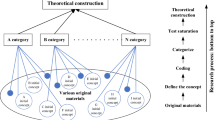Abstract
Although the emergence of collaborative online mapping platforms has radically lowered access barriers to cartographic practices, many studies have shown how participation in online mapping is biased socially towards more privileged groups and geographically towards higher income regions. Yet, exclusion-mechanisms beyond those socio-economic divides have hardly been considered so far. Adding one such possible cause of social exclusion that is not directly linked to socio-economic factors, this paper makes an argument for the consideration of cartographic epistemologies. We illustrate the exclusion-mechanisms of cartographic epistemologies through two exemplary case studies, focusing on the ground-truth agenda of OSM and on Wikimapia's endeavor to describe the world.
Zusammenfassung
Obwohl die Zugangsbarrieren zu kartographischen Praktiken durch kollaborative Onlinemapping-plattformen stark gesenkt wurden, haben zahlreiche Studien gezeigt, dass die Teilnahme an Online-mapping von sozialen und geographischen Ungleichheiten geprägt ist, zugunsten privilegierter Gruppen und einkommensstarker Regionen. Dabei wurden jedoch bislang kaum Exklusionsmechanismen jenseits sozio-ökonomischer Trennlinien diskutiert. Wir plädieren daher für die Berücksichtigung kartographischer Epistemologien als eine weitere Ursache sozialer Exklusion. Wir diskutieren die Exklusionsmechnismen kartogrophischer Epistemologien anhand von zwei Fallbeispielen — dem Ground-Truth-Ansatz von OpenStreetMap und Wikimapias Bestreben, die Welt zu beschreiben.
Similar content being viewed by others
Literature
Ballatore, A. 2014: Defacing the map: Cartographic vandalism in the digital commons. The Cartographic Journal 51 (3), 214–224
Bittner, C., 2014: Reproduktion sozialraumlicher Differenzierungen in OpenStreetMap: das Beispiel Jerusalems. Kartographische Nachrichten 64 (3), 136–144
Bittner, C., 2017: Diversity in volunteered geographic information: Comparing OpenStrectMap and Wikimapia in Jerusalem. GeoJournal 82 (5), 887–906
Bittner, C.; Glasze, G.; forthcomming: Who maps Middle Eastern geographies in the digital age?: Inequa lities in web 2.0 cartographies in Israel/Palestine. In: Krewani, A., Strohmaier, A. (Eds.) Media Cartographies and Spatial Knowledge in the Middle East and North Africa. Amsterdam University Press, Amsterdam.
Bittner, C.; Michel, B.; Glasze, G.; Turk, C., 2011: Krisen- und Konflikt-Karten im Web 2.0: Ein kritischer Blick auf die neuen Krisen und Konfliktkarten. Geographische Rundschau 63 (11), 60–65.
Crampton, J. W., 2010: Mapping. A critical introduction to cartography and GIS. Blackwell, Malden.
Dodge, M., Kitchin, R.M., 2013. Crowdsourced cartography: mapping experience and knowledge. Environment & Planning A 45 (1), 19–36.
Edney, M.H., 1993. Cartography without progress: reinterpreting the nature and historical development of map-making. Cartographica: The International Journal for Geographic Information and Geovisualization 30 (2), 54–68
Elrick, T., 2014: Sozialwissenschaftliche tag-Analyse mit OpenStreetMap-Daten am Beispiel religiöser Andachtsstätten in Deutschland. Kartographische Nachrichten 64 (3), 152–156
Glasze, G.; 2009: Kritische Kartographie. Geographische Zeitschrift 97 (4), 181–191
Glasze, G.; Perkins, C., 2015: Social and political dimensions of the OpenStreetMap project: towards a critical geographical research agenda. In: Arsanjani, J. J.; Zipf, A.; Mooney, P.; Helbich, M. (Eds.) OpenStreetMap in GIScience. Experiences. research, and applications. Springer, Cham, Heidelberg, New Nork, Oordrecht, London, 143–166
Goodchild, M. F.; 2007: Citizens as sensors: The world of volunteered geography. GeoJournal 69 (4), 211–221
Graham, M.; Sabbata, S. de, 2014: Uneven Geogra phies of OpenStreetMap. Online: http://geography.oii.ox.ac.uk/uneven-geographies-of-openstreetmap/ (25.04.2018).
Graham, M.; Sabbata, S. de; Zook, M.A., 2015: Towards a study of information geographies: (im) mutable augmentations and a mapping of the geographies of information. Geo: Geography and Environment 2 (1), 88–105
Harley, J. B., 1988: Silences and secrecy: The hidden agenda of cartography in early modem Europe. Imago Mundi 40, 57–76
Harley, J. B., 1989: Deconstructing the map. Cartographica: The International Journal for Geographic Information and Geovisualization 26 (2), 1–20
Kitchin, R. M., 2008: The Practices of Mapping. Cartographica: The International Journal for Geographic Information and Geovisualization 43 (3), 211–215
Kitchin, R. M.; Gleeson, J.; Dodge, M., 2013: Unfolding mapping practices: a new epistemology for cartography. Transactions of the Institute of British Geographers 38 (3), 480–496
Knoblauch, E.; Knuth, H., 2016: Das ist eine Moschee: Wo beten Deutschlands Muslime? Was glauben sie? Und warum weiß der deutsche Staat so wenig darüber?. Die ZEIT (30)
Neis, P.; Zielstra, D. W. G.; Zipf, A., 2013: Comparison of volunteered geographic information data contributions and community development for selected world regions. Future Internet 5 (2), 282–300
Olsson, G., 1998: Towards a Critique of Cartographical Reason. Ethics, Place a Environment 1 (2), 145–155
Olsson, G., 2007: Abysmal: A Critique of Cartographic Reason. University of Chicago Press, Chicago.
OSM Wik.i, o. D. Good practice. Online: http://wik.i.openstreetmap.org/wiki/Good_practice#Map_what.27s_on_the_ground (25.4.2018).
Perkins, C.; Dodge, M., 2008: The potential of user- generated cartography: a case study of the OpenStreetMap project and Mapchester mapping party. North West Geography 8 (1)
Pickles, J., 2004: A history of spaces. Cartographic reason, mapping and the geo-coded world. Routledge, London
Plennert, M., 2017: Analyzing the hidden backbone of an open-data-project: a genealogy of the Open StreetMap data model. Annual Meeting of the American Association of Geographers (AAG), 30 March 2017, Boston, MA, USA
Quattrone, G.; Mashhadi, A.; Capra, L.; 2014: Mind the map. Proc. of the ACM International Conference on Computer Supported Cooperative Work and Social Computing, 934–944
Rundstrom, R. A., 1995: GIS, Indigenous Peoples, and Epistemological Diversity. Cartography and geographic information science 22 (1), 45–57
Schmitt, T., 2003: Moscheen in Deutschland: Konflikte um ihre Errichtung und Nutzung. Vollst. zugl.: München, Techn. Univ., Diss., 2001. Dt. Akad. fur Landeskunde, Flensburg. Forschungen zur deutschen Landeskunde
Schuurman, N. C., 2009: Spatial Ontologies. In: Kitchin, R.M., Thrift, N. (Eds.) International encyclopedia of Human Geography, vol. 1. Elsevier, Oxford, 377–383
Turnbull, D., 2007: Maps Narratives and Tra ils: Performativity, Hodology and Distributed Knowledges in Complex Adaptive Systems? An Approach to Emergent Mapping. Geographical Research 45 (2), 140–149
Turner, A., 2006: Introduction to neogeography. O’Reilly, Sebastopol, Calif
Wikimapia statistics, o. 0. Placed added. Onl ine: http://wikimapia.org/stats/action_stats/?fstat=101&period=3&year=2009Etmonth=6(25.4.2018)
Wood, D.; Fels, J., 2008: The Natures of Maps: Cartographic Constructions of the Natural World. Cartographica: The International Journal for Geographic Information and Geovisualization 43/3, 189–202
Wood, M., 2015: The society of university cartographers — its growth and international status. The Cartographic Journal 52 (3), 224–227
Author information
Authors and Affiliations
Rights and permissions
About this article
Cite this article
Bittner, C., Glasze, G. Excluding Effects of Cartographic Epistemologies — Thinking About Mapping Paradigms in OpenStreetMap and Wikimapia. j. Cartogr. Geogr. inf. 68, 120–126 (2018). https://doi.org/10.1007/BF03544554
Received:
Accepted:
Published:
Issue Date:
DOI: https://doi.org/10.1007/BF03544554




